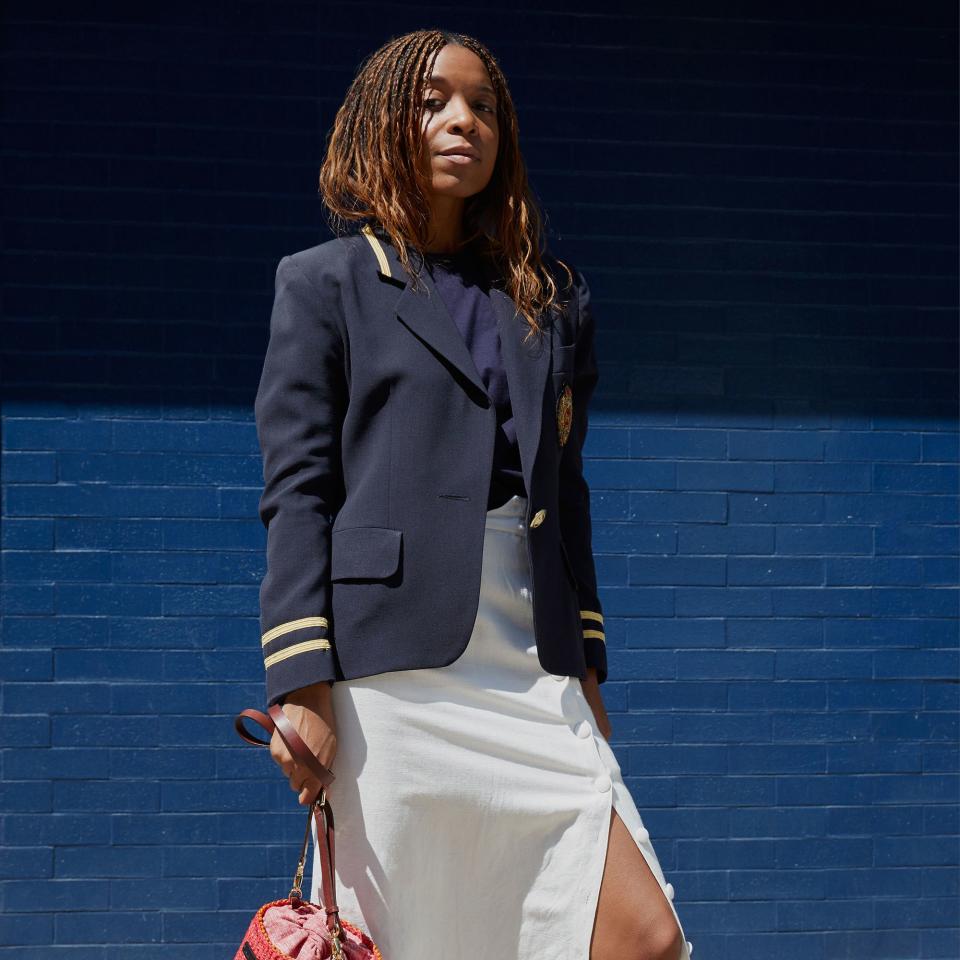A Former Corporate Lawyer Talks Launching a Sustainable Fashion E-Commerce Website
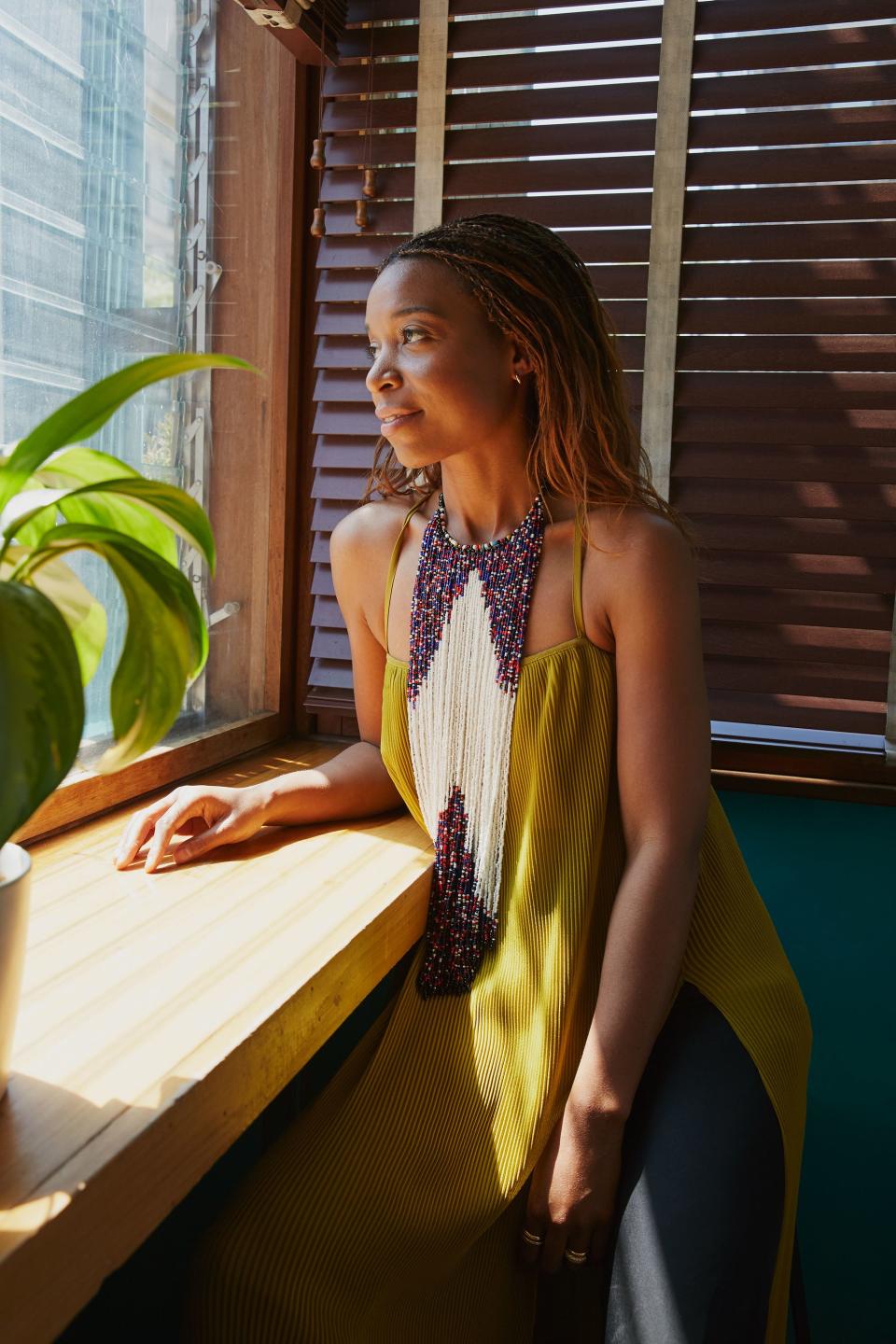
Faubourg—a term in French for “suburbs”—also happens to be the name of a bustling e-commerce destination for chic, eco-friendly clothes that come with cultural cred. Pieces include hand-woven raffia bags from Ghana by Aaks; Ajaie Alaei’s playful summer dresses that are created in India on a small, family-owned farm; and even classic Levi’s jeans that are produced using less water than the standard version.
The site’s New York–based creator, Priscilla Debar, grew up in Paris and is of West African descent, specifically from Ghana and Togo. (Growing up, she often visited the latter, where her mother is from.) Before launching Faubourg in 2017, she had practiced law for over 10 years, during which time she worked in commercial litigation on Wall Street and eventually ventured into privately representing creative talents. Then Debar sensed a turning point in her (very rushed) life and decided to pursue a path in sustainable fashion, where she could infuse her business expertise with her own culture, taste, and values. “I dug deeper and discovered the social tragedy behind fast fashion,” she explains. “I realized how much improvement is needed in the industry from an ethical standpoint. As a woman of color, seeing other people of color—mostly women and children—being exploited like their lives aren’t worth much made me think hard about how I was spending my money and the world I wanted to live in. So that’s how the need to create Faubourg became clear.” Another plus? Debar was able to switch out her nine-to-five pantsuits for a much more exciting wardrobe.
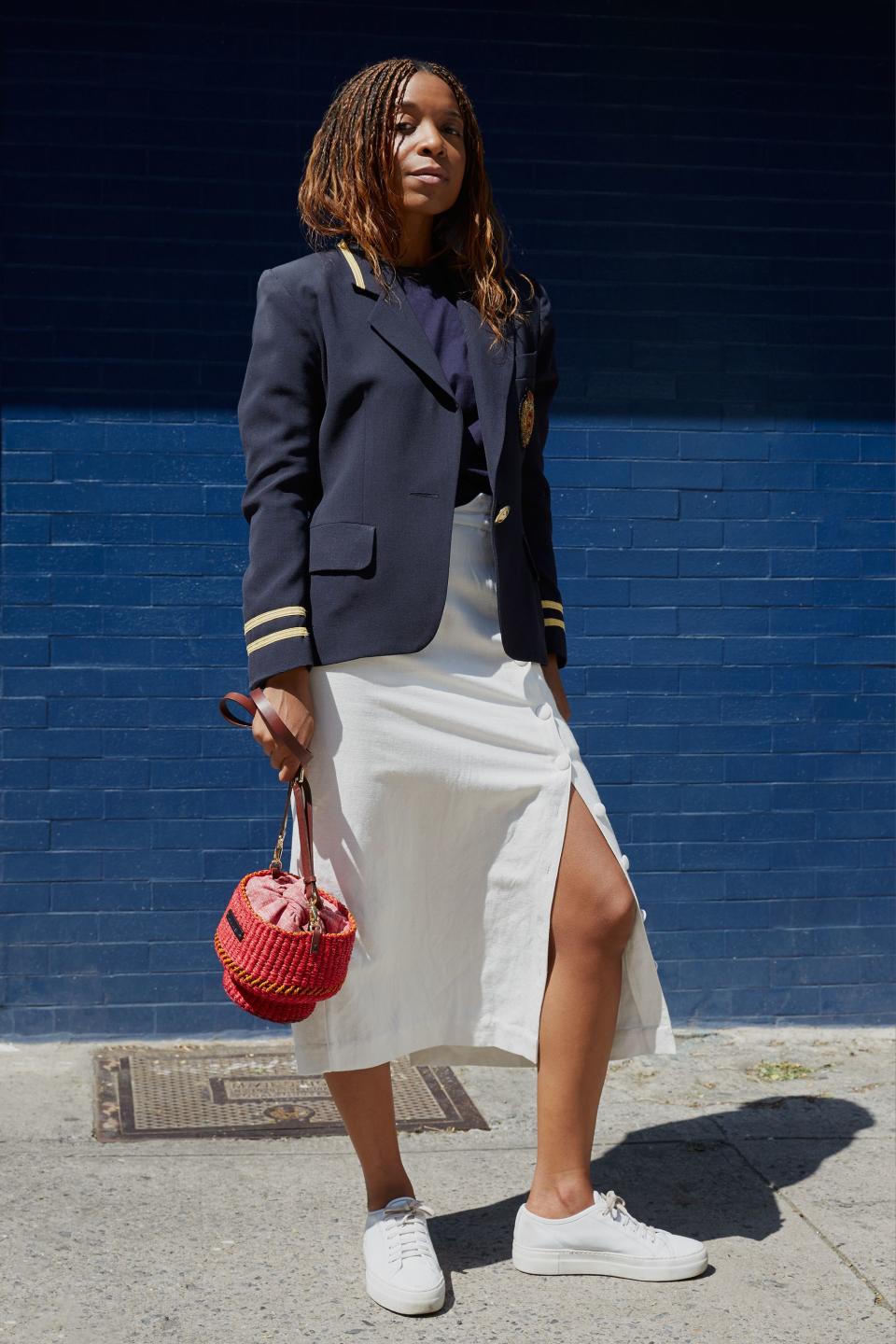
Here, Debar breaks down her unusual path—and unique style.
Debar’s clothes weren’t always so exciting.
“I was kind of constrained in this corporate uniform. It was never me. I used to wear a suit. A very quiet suit. There is a part of me that can be quiet and there is a side that can be fancy, but there was no way for me to express that in a corporate setting. I also had a lot of black clothes also; that used to be a part of the New York thing. One day, I opened my closet and I couldn’t tell anything apart from anything. It was a huge pile of dark stuff. I was almost depressed. I donated a lot of things and I sent it to recycling. There was a shift from a spiritual perspective, moving from something that was very dark to things that I wear [now] that are more light and colorful and in line with my mood and the way I am feeling.”
Her change of style came with a spiritual awakening.
“I took a break from all of that [law]. It was a little overwhelming at the pace I was living. I never took the time to really question what my purpose was. I just followed the motion. In 2014, I decided to leave New York and I took an opportunity in Mexico City. During that time away from New York, I started really looking at what mattered to me, what my values were, and what I wanted to do with my life. I was in my late 20s, early 30s, and things started to make more sense—[I was seeking] more than material comforts and meeting expectations for people around me, especially when I really wasn’t sure about what I wanted to do myself. I started being more aware of how it is important to be intentional in what you do for yourself, what you eat, where you go, and who you surround yourself with. It was like a spiritual awakening in values. It led me to question my wardrobe. I really loved shopping and I would do a lot of that and I wondered if I needed all that stuff.”
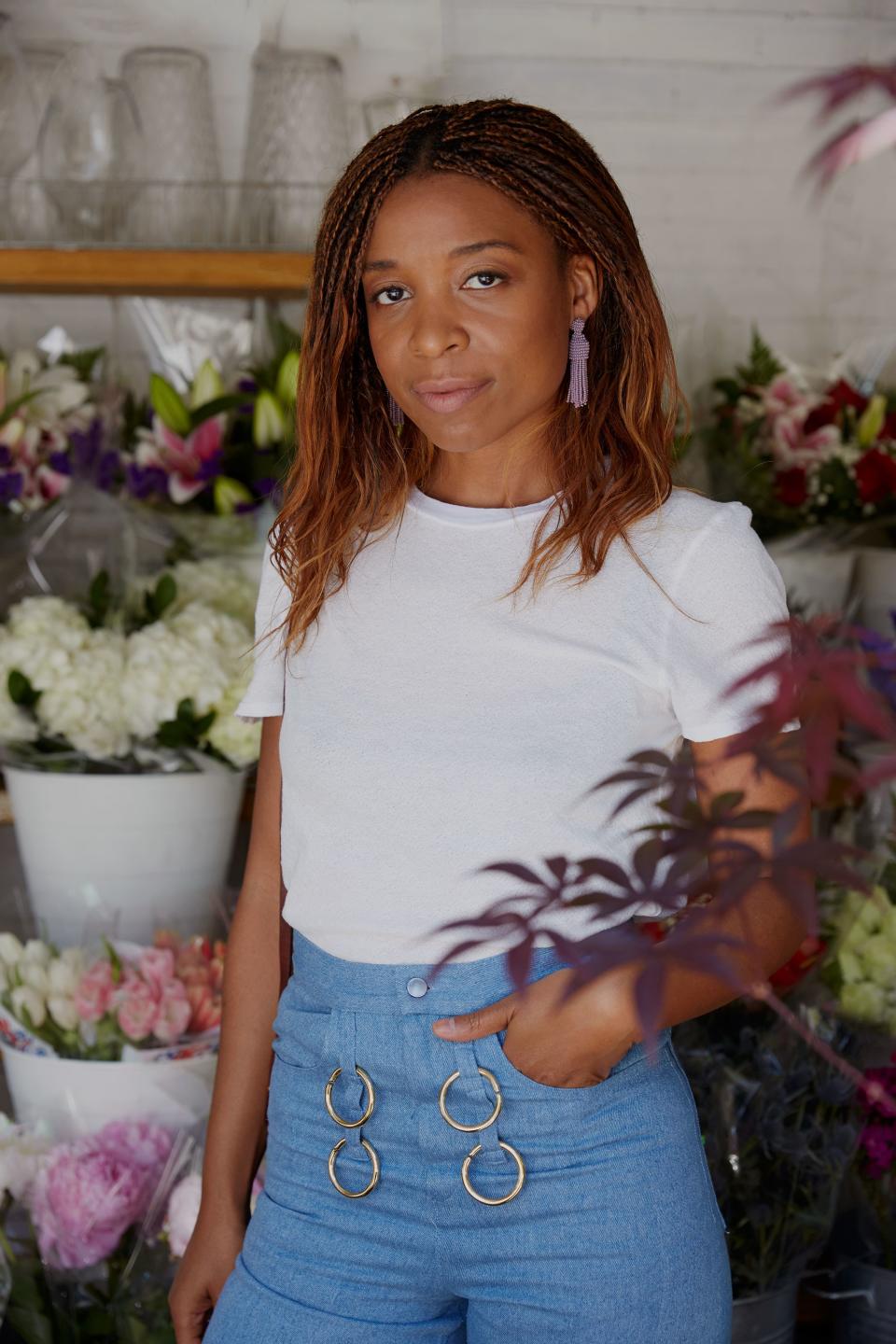
Becoming a mother was another catalyst for creating Faubourg.
“As I believe many first-time moms do, I put myself under a great deal of pressure to do the best for her [my child]—I breastfed, only fed her organic solid foods, and bought her organic cotton and natural fiber clothing that would be harmless for her. Those choices were the result of some research I never really took the time to do for myself. With that knowledge, I realized that whatever was good for her was also good for me. Once you find out about all the chemicals in clothing, it’s hard to ignore.”
Fashion is a family affair.
“I also had this influence from my great-grandmother. She was the most influential woman in my life besides my mom, and she happens to have raised my mom. She was covered in Ebony in 1962—there is a whole piece about her. She was in the trade of African print fabric in West Africa and eventually throughout the entire continent. She created a whole business from scratch. The story was that she dropped out of school during elementary school because there were some issues with her teacher harassing her. She didn’t want to be a failure, and she found some goods at the market that she wanted to sell and realized that fabric was the best thing, because in Africa there was no ready-to-wear. She was dubbed “Nana Benz,” which in Africa [meant] women who traded in fabric and became rich and successful so they would buy a Mercedes-Benz. Even to this day, people still have this habit of buying a piece of fabric and taking it to the tailor and designing what they wear. I grew up in that culture as well, and I think that informs a lot of my love for fashion.”
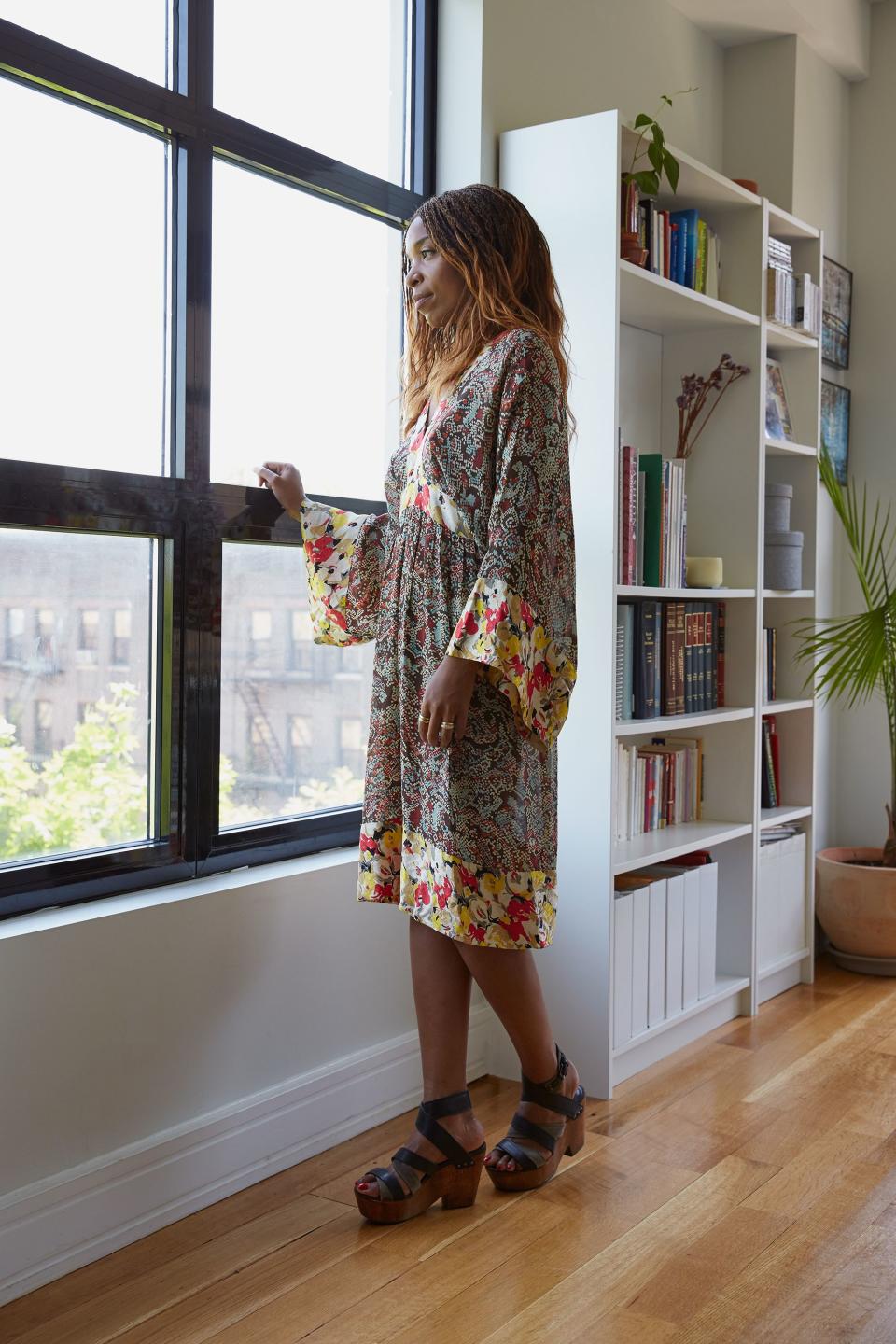
She’s seen sustainable fashion change over the past several years.
“I want it [Faubourg] to be something that is exciting. When I came into it [sustainable fashion], some of it was beautiful but it was also very basic. Basics are all great, but what about feeling a bit whimsical, a bit quirky, or if your mood is changing? Some days, you are very quiet and some days you want to be loud. So is there room for that? Why is there not an option that respects people’s moods and qualities? It is nice to have a nice T-shirt and sweater, but outside of that, can we not be interesting and sustainable from a style perspective? We are working for that.”
Diversity is important to the Faubourg philosophy.
“When I started, I thought, ‘Why is this space so not inclusive? Why aren’t we talking to everyone from a diverse and ethnic background when we are talking about an issue that is so universal, like the future of our planet and how we treat other people? How is it [sustainable fashion] not something that reflects society a bit more?’ I want people to think that they have a role to play based on where they spend their money and who they support. People think fashion is superficial but it is not; it is way of showing your view of the world.”
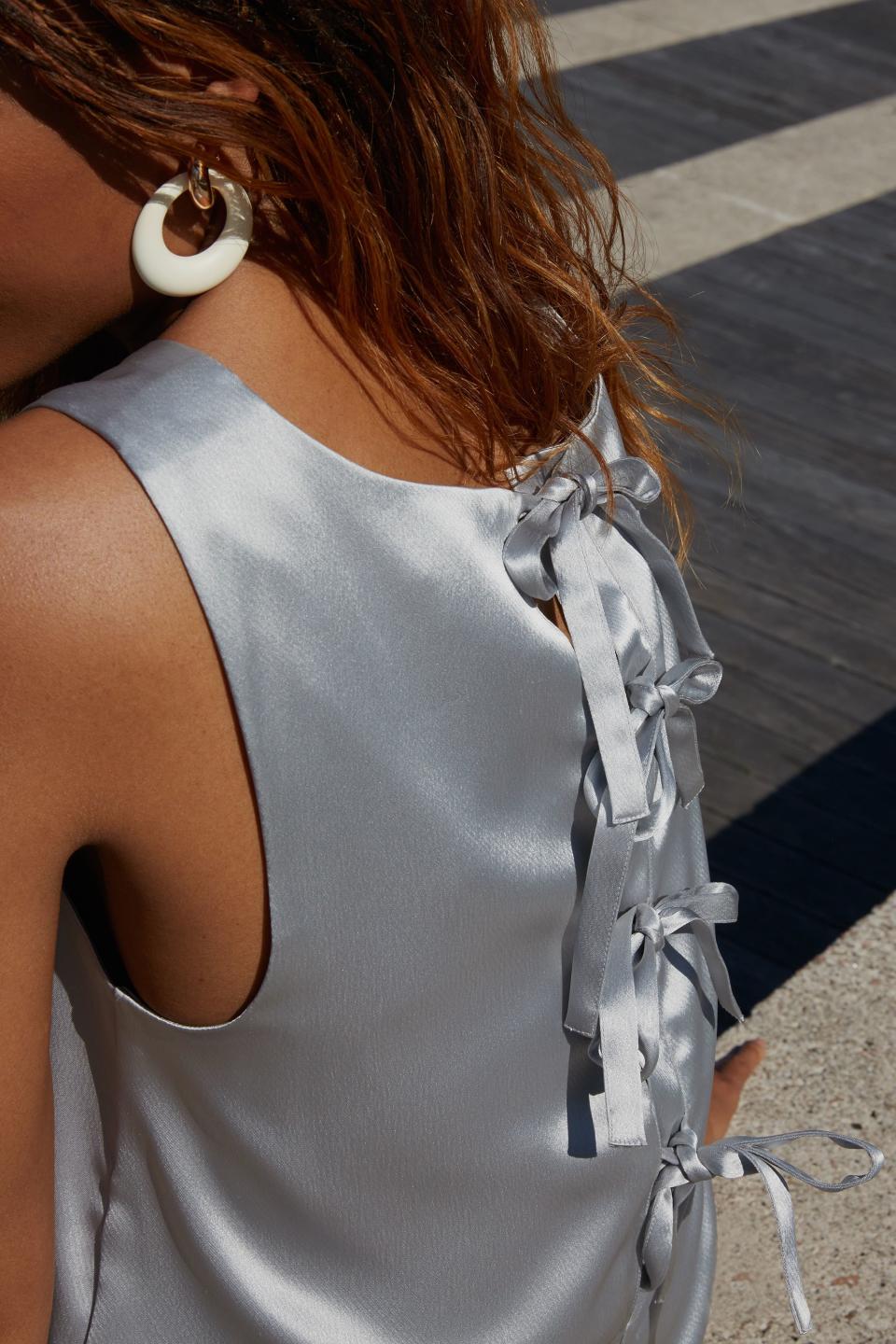
Some of the pieces Faubourg sells are directly inspired by her roots.
“My mom is in Paris, I am here, [the craftswomen are in Togo], and we are coordinating through three continents to design these necklaces through WhatsApp! We wanted something very cultural for a confident person to wear that is also very modern. The necklace takes four to six days to make, sometimes a week. They are made from tiny beads that in Togo they put around the waist of babies as a way to distinguish genders, in addition to piercing their ears. In other tribes, women wear them as an ornament. When you disrobe and you’re in front of a man, there is still that element of being coquettish. It is also a way to check how your body is doing. Usually if it is too small, you might be pregnant. These necklaces are made out those tiny beads that are functional from a social perspective. I love the fact that the people behind them are very proud of what they do. They are almost like family and there is no issue about exploiting them. What we are looking for is to bring life to a wonderful country.”

